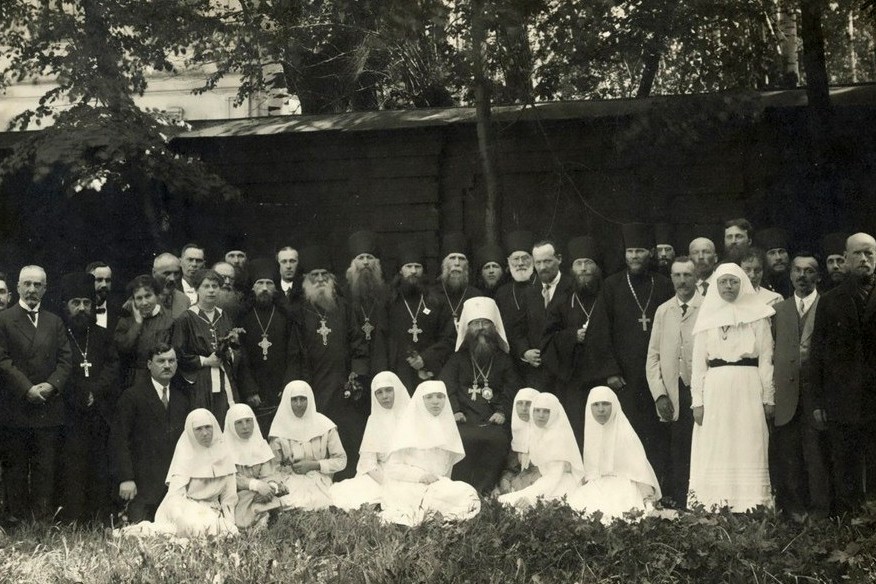The Human Person in the Context of the History of Orthodox Brotherhoods: Bishops, Priests and Lay People

The phenomenon of brotherhood is steadily becoming more of an object of scholarly, societal and church interest. Over the last three years, conferences focussing on the history of Orthodox brotherhoods have been held in greater Moscow, St. Petersburg and Ekaterinburg. Since the time of the apostles, brotherhoods have been a focal point and place of discovery of remarkable Christian unity, service and freedom within the Church. Recent conferences have been held with the blessing of local hierarchs and have brought together dozens of specialists, including historians, theologians, philosophers and experts in regional studies. Clergy, laity who are active in their parishes, and others who care about the church, have shown a great deal of interest in the recent conferences.
The 2020 Conference is dedicated to the memory of Archbishop Savva (Tikhomirov) of Tver and Kashin (1819-1896). 2019 marked 200 years since the birth of Archbishop Savva, who was a respected member of a number of Orthodox Brotherhoods within the Russian Empire, as well as a well-known historian, archeologist, and collector of local lore from the Tver region.
In continuing to develop the topics mentioned above, the 2020 organizers propose that we discuss the human person (whether bishop, priest or lay person) in the context of brotherhood service and social responsibility: personal participation in brotherhood, Church and Nation. Who were these people and what were they like? We mean the chairmen, honourable and lifetime brotherhood members, supporters, teachers, trustees, spiritual mentors and theologians of the brotherhoods of our past… What were they really like? How were these Orthodox brotherhoods structured? What guided their founders? How did a person’s specific personality affect choice of service, and the creation and organization of charitable and philanthropic work? How did the values of personal freedom and sobornost work together in brotherhood life?
Both memoirs and various works of scholarly research point to an unusual and deeply spiritual atmosphere prevailing in these re-established and newly established brotherhoods, which became true manifestations of civil and church society. These brotherhoods were ready to lead the way to Russia’s transformation on the basis of Christian unity, freedom and brotherly love, through and by the power of faith and sacrificial love, culture and education, care and responsibility for others, and mutual interdependence.
Conference discussions will focus around the following topics:
- Particular people and their personalities in the context of service in brotherhood
- The values of personal freedom and sobornost within the foundations of brotherhood life and within its structure and organization
- The social legacy and personal uniqueness of brotherhoods and similar spiritual unions and fellowships at different times in history
- The basic types of service provided by brotherhoods, both to the Church and to society
- The phenomenon of sobriety brotherhoods and fellowships
- Orthodox Christian brotherhoods and sisterhoods in western and eastern Europe
We invite historians, scholars of cultural studies, sociologies, philosophers, specialists in local tradition and theologians interested in the phenomenon of Orthodox brotherhoods and similar unions and associations to take part in this conference, and submit their papers for inclusion in the conference programme. If you wish to participate by submitting a paper, please submit your topic and main theses to the conference organizing committee at conference.bratstva@gmail.com, by 1 December, 2019. Please include your surname, name (and patronymic, if you have one), your city of residence, place of work or service, job title, email, telephone, and whether you require an official invitation. The conference organizing committee reserves the right to select papers for participation in the conference. If your paper is selected to participate, meals and lodging will be funded by the conference organizers. We ask for a contribution of 1000 rubles. The best papers with be published in the Tver State University and St. Philaret’s Institute Journals.
Co-Chairmen of the Conference Organizing Committee:
Dean of the History Faculty of Tver State University, Tatiana Leonteva (D.His.)
Academic Secretary of SFI, Yulia Balakshina (D.Phil.)
Chairman of the Bogoljubskoje Minor Orthodox Brotherhood, Andrey Basenev
